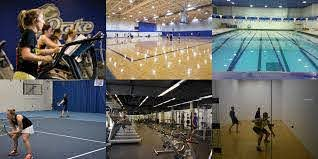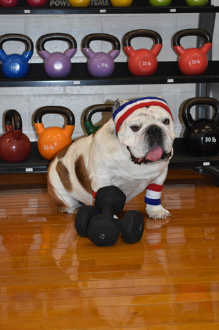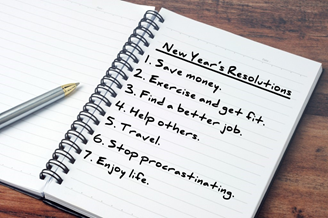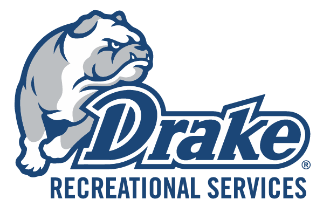
Bulldog Bites Blog
Quick reads for a happier, healthier you!
10 Tips for Race Day: From the Night Before to the Night After
By Danielle Ross
1. Hydrate, Nutrition, and Sleep the Night Before- Make sure to drink plenty of water the night before and avoid alcohol or excessive caffeine. Load up on carbohydrates like pasta or bread, but don’t eat too close to bedtime. Get at least 8 hours of sleep before race day so that you are well rested and ready to go.
2. Eat Breakfast- Make sure to eat a good breakfast full of carbohydrates and less fiber and fats.
3. Don’t Wear Brand New Shoes- Race day is not the day to try out that new pair of running shoes. You want shoes that have been worn in, so you don’t end up with blisters.
4. Be Prepared- Before you leave the house be prepared for the race. Make sure you have your playlist ready, proper clothing, stuff for refueling and hydrating, and a way to carry them during the race or map out stations along the route.
5. Stretch and Warm Up- Remember to prepare your muscles before you begin to prevent cramping by some warm-up stretches and dynamic movements.
6. Refueling and Rehydrating During the Run- It is recommended to refuel your body during a long run 30-60g of carbohydrates every hour. There are several ways to do this. Some use refueling gel, powders for shakes, or whole food such as dried fruits, pretzels, granola bars, and fruit. There are refueling belts you can buy to wear that will carry your food and water bottles. When rehydrating remember, to drink a little at a time but
7. Finish Strong- Keep that drive going and finish the race strong. Don’t give up just keep going. You can do it, just
8. Muscle Recovery After the Race- Remember after the race to take time for muscle recovery so prevent soreness or cramping. A foam roller or stretching is a good way to recover as well as applying ice or sitting in an ice bath.
9. Nutrition Recovery After the Race- Replenish your body with a good meal that includes carbohydrates, 20-30g of protein, and
10. Celebrate You Earned It!
Yoga Then and Now
By Danielle Ross
Brief History
Yoga has been dated back over 5,000 years ago, to the Indus-Sarasvati civilization in Northern India. Traditionally, yoga was passed down from teacher to student verbally until the word “yoga” was first seen in the Rig Veda, then in the Upanishads scriptures, and the renowned Bhagavad-Gita in 500 B.C.E. Yoga comes from the Sanskrit root ruj meaning “to yoke” or “to unite”. In classical or Raja yoga the purpose is to unite your mind, body, and spirit as outlined in Patanjali’s Yoga Sutras “Eight Limbs of Yoga”. The Eight Limbs of Yoga are the steps taken to achieve enlightenment according to Patanjali.
Eight Limbs of Yoga:
- Yamas - Five universal, ethical and moral observances to live by (nonviolence, truthfulness, non-stealing, continence and non-covetousness)
- Niyamas - Five spiritual and self-discipline observances (cleanliness, contentment, spiritual austerities, study of scriptures and surrender to God)
- Asana - physical posture, originally intended only for seated meditation, but more recently adapted to encompass all physical yoga practices
- Pranayama - breathing exercises to control the flow of prana (vital life force)
- Pratyahara - Withdrawal of the senses
- Dharana - Single pointed concentration
- Dhyana - Meditation
- Samadhi - Liberation or blissful union with the Divine
Four Traditional Paths of Yoga
- Bhakti- devotion
- Karma- selfless service
- Jnana- knowledge
- Raja- self-discipline
Yoga Today
Modern yoga practiced today in America is used more for exercise, strength, and stability. Techniques usually including holding positions or ‘asanas’ flowing from postural positions while focusing on your breathing. However, there are several different purposes and forms of yoga out there such as hot yoga, aqua yoga, power yoga, Hatha, Vinyasa, and fertility yoga. Yoga can be done at home by yourself with a book, Youtube video, on-demand video, via zoom session with a group, or in a class at your local gym. Drake Rec Services offers yoga classes in the Bell Center at different times of the day. You can join in via zoom or practice to one of the on-demand yoga sessions. To check out the schedule or to sign, up just click on this link. Below is a list of benefits of yoga and current research on the benefits.
Research on Yoga
A cross-sectional assessment of knowledge, attitudes and self-perceived effectiveness of complementary and alternative medicine among pharmacy and non-pharmacy university students
https://www.ncbi.nlm.nih.gov/pmc/articles/PMC6500055/
The Efficacy of Yoga as a Form of Treatment for Depression https://www.ncbi.nlm.nih.gov/pmc/articles/PMC5871291/
Evidence Map of Yoga for Depression, Anxiety, and Posttraumatic Stress Disorder https://www.ncbi.nlm.nih.gov/pmc/articles/PMC5459483/
Impact of Yoga on Inflammatory Biomarkers: A Systematic Review https://www.ncbi.nlm.nih.gov/pmc/articles/PMC6700894/
Effects of yoga, strength training and advice on back pain: a randomized controlled trial https://www.ncbi.nlm.nih.gov/pmc/articles/PMC5372262/
The Power of Positivity
By Danielle Ross
Are you the kind of person who sees everything as the glass half full or half empty? Do you choose to look for the positive side of every situation or the negative side? Based on your perspective of things, how happy are you right now and how is your health? Did you know that having a negative outlook on things is toxic to our body and can increase your chances of health problems in the future? Negativity can increase depression and anxiety or cause you eat unhealthy and exercise less. It takes away life’s motivation and drive. Believe it or not, studies show that having a positive outlook on things can increase your chances of having a longer, healthier life.
Benefits of Positivity:
- Improves mood, happiness, gratitude, life satisfaction, sleep, health, overall wellbeing, overcoming health conditions, eating habits, productivity, performance, and
- Increases resilience, self-esteem, meaning of life or life’s purpose, concentration, longevity, immune system, financial success, and success in your
- Decreases stress, depression, anxiety, cardiovascular conditions, health problems, pain, and chances of substance
“The greatest discovery of my generation is that a human being can alter his life by altering his attitudes of mind.” – William James
It’s okay if you don’t always see the positive side. Sometimes negativity has a place and time but make sure that once you have processed what you are experiencing that you let it go so the negativity doesn’t consume you. Some say that being negative protects them from disappointment, but really what is learned from never having hopes or dreams? Negativity is proven to be toxic to our bodies and take healthy time off our lives. So, to think it is protecting you may not be the way to think about negativity. However, thinking positively may not come naturally to everyone. Luckily, this is a skill that can learned and achieved through practice.
How to think more positively:
- Try to see a positive side to every situation or Maybe you learned something new or discovered strength you didn’t know you had.
- Learn positive words to expand your vocabulary so you can draw from them when struggling with a
- Surround yourself around positive people and Positivity can be contagious and negative people can be toxic to your wellbeing.
- Watch a TedTalk on positivity for inspiration. There is a good one by Alison Ledgerwood called “A simple trick to improve positive thinking” and one by Samantha Rea called “Positivity: The power of choice.”
- Let go of personal negative thoughts instead of dwelling on
- Take time daily to think of something to be grateful Appreciate what you have instead of being disappointed in what you don’t have.
- Don’t set yourself up for disappointment by expecting everything to end up exactly how you want it to. Accept that some things are out of your control and let them be however they are meant to be. Take the time to learn from every experience.
- Consider taking surveys to discover how you view things, your level of happiness, or overall There are several free surveys from the University of Pennsylvania positive psychology page Authentic Happiness.
Training for Drake University’s Road Races
By Danielle Ross
The annual Drake Road Races is coming up in April and whether it is held virtual or in-person you may want to start training. It doesn’t matter if you are running a 5K, 10K, or half marathon beginning a training routine is still the same. If you are new to running it may feel overwhelming to know where to begin and how to stay motivated. Well, we got you covered. This article covers how to begin a routine, stay motivated, and prevent soreness afterwards. If you are new to running or have taken a break and starting up again you will want to start off slow and build up your stamina.
Before you begin running:
- Have good running shoes
- Wear proper attire for where-ever you choose to run
- Stay hydrated
- Get plenty of sleep
- Stretch and warm up your muscles
- Have a safe route planned out ahead of time
Planning your route out ahead of time and knowing your limits is important. If you are running a long distance outside you want to make sure you have the energy to make it back where you started. A circle path at a park or indoor track is a good idea when first starting until you know what a good distance is for you. When you feel you can do it increase your distance and work up to your goal. Don’t start off with a heavy sprint. You want to conserve your energy so that you have the stamina and endurance to run a long distance. Working up to a steady moderate pace is better and you can finish hard. Make sure you schedule a day off from running so that your body can recuperate. There will be times when you lose motivation to push yourself harder or to even go for a run.
Tips to stay motivated:
- Set smart goals for running so they are achievable and gratifying and encourage you to challenge yourself more.
- Have a support system, people to encourage you or others to run with so that it is more enjoyable.
- Create little rewards for yourself when you achieve your goals and have a big reward for after you finish a race.
- Listen to music, a book, or podcasts while you run.
- Remember why it is important for you to run or envision yourself completing the race and how good that would feel.
- Find a time of day that works best for you, when you have plenty of time and energy.
- Hire a personal trainer or wellness coach to hold you accountable and guide you to achieving your running goal.
Running is no fun if you are sore for days afterwards. Just like before a you go for a run, afterwards you want to take care of your body. There are several ways to prevent muscle cramps and soreness. Taking the time to cool down your muscles by slowing down from a steady pace to a walking pace before you stop will help prevent cramping. Stretch out your muscles to get out the lactic acid. Ice baths, muscles rubs, and massage can help prevent any soreness. Make sure to replenish your body with proper nutrition especially carbohydrates since those were converted into energy during the run and plenty of water. Remember to take a day off from running to give yourself time to rest and prepare for the next time. Good luck as you prepare for the Drake Road Races.
What Drake Rec Has to Offer
By Danielle Ross
Whether it’s your first year at Drake University or you just haven’t made over to the Bell Center yet, it is the building connected to the Knapp Center on the northeast side of campus. As a student and full-time faculty member you are entitled to a free membership, so take advantage of it. Despite the pandemic, Drake Rec still has so much to offer it is hard to know where to start. Well, first off due to the pandemic everything needs to be scheduled first, so that social distancing and sanitation can be maintained, and you must wear a mask while in the Bell Center. The Bell Center has a weight room, fitness classroom, basketball court, pool, and racquetball court. You can make or change reservations by visiting rec.drake.edu.
Wellness
The wellness department at Drake Rec offers free personal fitness assessments and body composition tests for students. This is ideal to check out where you stand before starting a workout regimen or even at a halfway point. The body composition test tells you what percentage of your weight is fat, water, bone, and muscle. The personal fitness assessment measures your current endurance, strength, flexibility, and coordination. Personal training sessions are offered to students and staff for a fee. If you need someone to design a routine for you or hold you accountable and encourage you, then consider hiring a certified personal trainer at Drake Rec. The wellness department offers a bootcamp in the first 6 weeks of spring semester. This includes a fitness assessment, body composition, workout routines or classes, and challenges. There is no better timing to work out then before summer arrives and bootcamp will get you off a great start. To sign up for any of these things the wellness department offers email wellness at wellness@drake.edu.
Intramurals
Drake Rec offers a wide variety of intramural activities. Some of them include cornhole, soccer tennis, trivia, badminton, 3-point shoot-out, sand volleyball, softball, and much more. What a great way to destress after classes and have some fun playing around with your friends. This is also a great way to meet others interested in similar activities as you. To check out the schedule or sign up go to Imleagues.com/Drake or click on this link.
GroupX
If you don’t like coming up with your own workout routine, then try one of the GroupX classes Drake Rec offers. You can take them in person, via zoom, or on demand by yourself. Classes offered are Yoga, Pilates, HIIT, Hip Hop, Zumba, Muscle Mix, Barre, and Cardio Kickboxing. One of the great things about Drake Rec is if there is a class you want to take that isn’t offered, they will try to provide it or even allow you to teach. To sign up for a class or to learn more about them go to Imleagues.com/Drake.
Drake Rec has so much to offer there is no reason not to stay healthy and active while attending college at Drake University. Do you prefer social media? Drake Rec is on Facebook, Twitter, Instagram, TikTok and has their own Drake Rec app for your phone. They have taken away every excuse I can think of time, money, location, and knowing where to start. What excuse do you have?
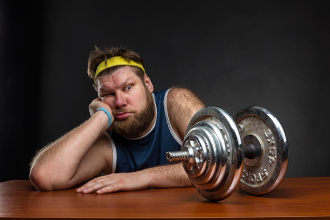
Exercise, how to get started and stay motivated.
By Danielle Ross
“The hardest thing about exercise is to start doing it.
Once you are doing exercise regularly, the hardest thing is to stop.”
“The only bad workout is the one that didn’t happen.”
Getting back to exercising and starting a new routine can be very intimidating and even challenging at first. Knowing where to start, how to incorporate it into your busy schedule, and how to stay motivated can help you succeed in achieving your exercise goals. Getting started can be simple and easy if you can afford and want to hire a personal trainer. Hiring a personal trainer can be expensive and isn’t for everyone. The first thing to do is assess your health and fitness status. Are there any medical or health issues that need approved from the doctor first? What is your fitness status? Do you feel you need to start with stretching and walking or with some weights and cardio? Next is to design a realistic plan or goal to exercise. What day and time of the week are you able to exercise and for how long? Do you prefer to workout by yourself or in a group and at the gym or at home? What type of exercise do you prefer or had success with, in the past? These questions are important to ask yourself before starting a new routine.
“There are seven days in a week and someday isn’t one of them.”
It’s not about having time,
It’s about making time.”
10 Tips to incorporate exercise into your schedule
- Workout during your lunch hour.
- Wake up an extra 30 minutes earlier to exercise in the morning.
- Plan to exercise by putting it on your schedule and doing it.
- Set an alarm to remind you to exercise so you don’t forget.
- Get your workout in by biking, running, or walking to and from school or work.
- Meet up with your friends at the gym and combine social time with workout time.
- Workout while cleaning your house or brushing your teeth. You can do some squats, lunches, or even dance.
- Use an exercise ball to sit on at work instead of a chair to build core muscles, balance, and stability.
- Rather than watching tv, exercise.
- Make exercising something you do with that special someone in your life daily. This is a great way to support each other and spend time together. Or make it a family routine. Be a role model for kids and model healthy living.
“When you feel like quitting,
think about why you started.”
“Success in life comes when you simply refuse to give up,
with goals so strong that obstacles, failure, and loss only act as motivation.”
When you begin to workout it is okay to start out slow and build up stamina. Remember to drink plenty of water and get proper nutrition when exercising. Exercise will become a habit once you get a routine down. If later down the road you find you need motivation there are several options. You can hire a personal trainer or wellness coach but that can add up. There are lots of motivational quotes and videos online as well as apps for your phones to inspire you. Maybe find people or an environment that can support and motivate you. Take time to remember why it is important to exercise. Look towards the long-term goal or vision of a better you. Make small goals so you can see your progress or track your progress with a diary or app. You can make a personalized playlist to listen to while exercising or what-ever works for you.
“You only get one body,
Take care of the one you have.”
“Today I will love myself enough to exercise.”
Drake Bulldog Bootcamp 2021
By Danielle Ross
The annual Drake Bulldog Bootcamp is about to start. Every year student interns put together a free bootcamp for Drake students during the spring semester. Bootcamp 2021 will be designed by Alex Klosterman, a senior in Health Sciences Here at Drake University. After graduating from Drake, Alex plans to pursue a Doctorate in Physical Therapy. In his free time, he enjoys going to the gym and staying fit. If you are interested in making personal fitness a priority this spring semester, Alex is ready to help, and this is a fantastic way to get started. This year’s 4-week long guided program will be performed virtually via zoom. Bootcamp 2021 will include two live workouts each week, along with optional workouts throughout the week. You can expect circuit style exercises as well as HIIT. The program will begin on February 21, 2020 and run until March 15th. The deadline for registration is Thursday, February 18th.
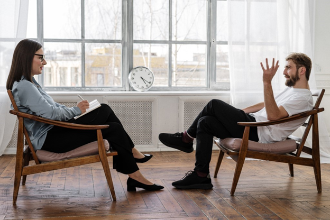
Do you need a Wellness Coach?
By Danielle Ross
Having a hard time reaching your workout goal or improving your eating habits? Do you need more balance in your life? How about being held accountable or motivated to make a change? If you answered yes to any of these questions, then a wellness coach is exactly what you need. A wellness coach uses motivational interviewing to encourage you to build self-efficacy and motivation to recognize and make changes needed to improve your overall well-being. Wellness coaches focus on several dimensions of wellness shown in the wellness wheel below.
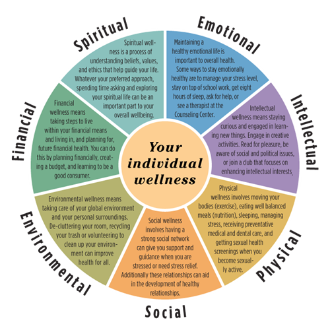
Reasons for a wellness coach
- Quit smoking or drinking
- Improve eating or drinking habits
- Weight loss motivation and accountability
- Designing health goals
- Improve exercise habits
- Create balance in life
- Improve spending habits
- Build a better support system or environment
- Manage medication better
- Increase spiritual or self-awareness
- Emotional balance
- Build confidence or self-efficacy
Sessions with a wellness coach usually last approximately 30 minutes except for the initial appointment which takes about an hour. You can meet in person, over the phone, or via video conference once a week for up to 3 months or longer, depending on the clients needs. The cost of an appointment varies based on the setting and experience of the coach. If you are a student at Drake University, Drake Wellness offers free wellness coaching sessions at the Bell Center. To schedule an appointment email wellness@drake.edu. A wellness coach might just be what you need to make positive changes when it comes to your wellness. Don’t wait until New Year’s to start living a healthier life, start today!
Research articles on Wellness Coaching
Telephone-Based Coaching: A Comparison of Tobacco Cessation Programs in an Integrated Health Care System
https://www.ncbi.nlm.nih.gov/pmc/articles/PMC5118192/
Health and wellness coaching positively impacts individuals with chronic pain and pain-related interference
https://www.ncbi.nlm.nih.gov/pmc/articles/PMC7384647/
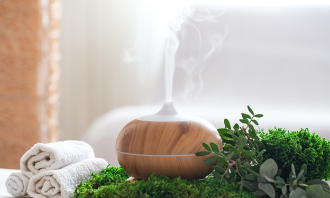
Aromatherapy for Stuffy Noses
By Danielle Ross
Ugh, it’s that time of year again, stuffed up nose season. Whether it is from allergies or just the change in the weather, people seem to be talking about being all stuffed up. Luckily, there are some easy remedies for this. Aromatherapy can be used to clear those sinuses up. Here are a few examples of some essential oils good for clearing up inflammation and congestion in the sinuses.
Essential oils to help clear your sinuses:
Peppermint Spearmint Eucalyptus
Tea Tree Lavender Rosemary
Oregano Clary Sage Ravintsara
You can add a couple of drops to a cotton ball and inhale. You can also add a couple drops to boiling water and place a towel over your head and inhale the aroma. The most convenient way to use aromatherapy is to diffuse your oils into the air. Below are some great diffuser recipes you can try.
Diffuser Recipes:
Stuffiness Be Gone Breathe Better Sinus Remedy
3 drops Eucalyptus 2 drops Spearmint 2 drops Tea Tree
2 drops Lavender 2 drops Lavender 2 drops Rosemary
2 drops Peppermint 2 drops Clary Sage 3 drops Eucalyptus
Open Sinuses Fresh Air Smell Again
2 drops Spearmint 2 drops Peppermint 2 drops Peppermint
2 drops Peppermint 3 drops Lavender 4 drops Lemon
2 drops Eucalyptus
Remember to follow us on all our social media sites to learn more about aromatherapy and other wellness information.
New Year’s Resolution
By Danielle Ross
Time to start thinking about your new year’s resolution. After how 2020 went, who isn’t looking forward to 2021. I think everyone is wanting a fresh start and what better way than starting the new year off with new desires and goals. What do you want most out of 2021? For me, what I want most is to be able to walk across the stage when I graduate this spring from Drake University. If you are struggling to think of some goals or desires for next year, then I got you covered with a list of common new year resolutions.
- Exercise more, eat healthier, and take time of yourself
- Lose weight or slim down a size
- Get your health issues looked out
- Improve overall wellness
- Spend more time with family or friends
- Travel
- Learn a new language, hobby, or trade
- Make more money, get a better job, or start a new business
- Buy a car, boat, or house
- Pay off your debt
- Get married or start a family
- Be more in touch with yourself, god, or universe
Of course, making a new year’s resolution is the easy part, staying with it is the hard part. Now days there are apps out there for everything, including new year’s resolutions. There are apps to help track and motivate you to eat healthier and exercise, improve your finances, and balance your life. So much can be done live online like socializing, exercising, and learning. Completing your resolution can be very easy and convenient if you take advantage of these options. Good luck and have a happy new year!
Past Blogs:
- Stress Relief
- Post Workout Remedies
- Cold & Flu Season
- Fall Diffuser Recipes
- Mindfulness
- Qi Gong & Tai Chi
- Distress vs. Eustress
- Rec Movement
